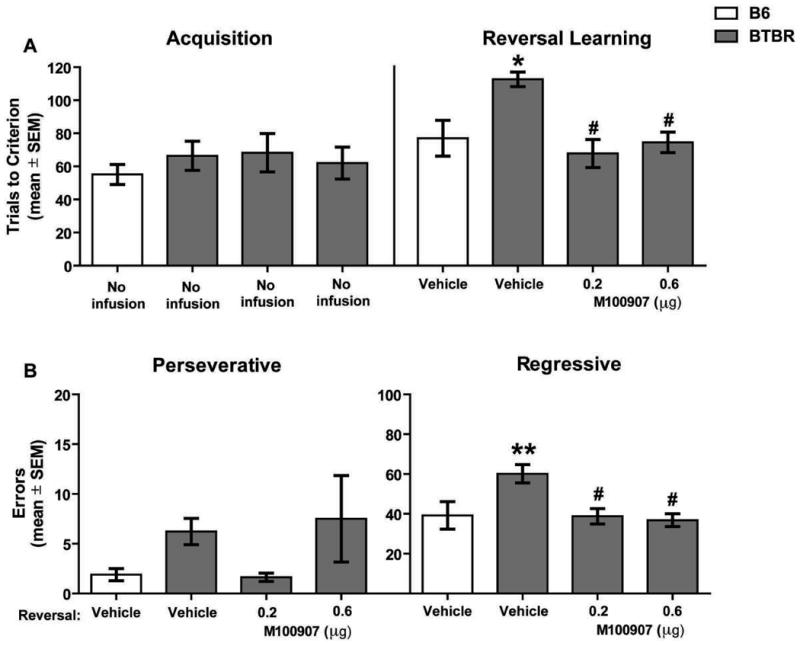Figure 2.

Microinfusions of M100907 into the dorsomedial striatum attenuates a probabilistic reversal learning deficit in BTBR mice by decreasing regressive errors. The treatments on the x-axis represent the treatment received prior to reversal learning. Mice did not receive infusions before acquisition learning. A) Mean (±SEM) trials to criterion on acquisition and reversal learning. This test included the following groups: B6: vehicle (n = 9); BTBR: vehicle (n = 9), 0.2μg (n = 8), 0.6μg (n = 6). Vehicle-treated BTBR mice required significantly more reversal learning trials compared with that of B6 vehicle-treated mice. M100907 at 0.2 and 0.6 μg infused into the dorsomedial striatum significantly attenuated trials needed to reach criterion. *p < 0.01 vs. B6-vehicle; #p < 0.01 vs. BTBR-vehicle. B) Mean (±SEM) perseverative and regressive errors committed during reversal learning. There was no overall group effect on perseverative errors despite vehicle-treated BTBR mice showing an increase in perseverative errors compared to vehicle-treated B6 mice. Vehicle-treated BTBR mice made significantly more regressive errors compared to vehicle-treated B6 mice. Microinfusions of M100907 at 0.2 and 0.6 μg into the dorsomedial striatum significantly attenuated regressive errors in BTBR mice compared to vehicle-treated BTBR mice. *p < 0.01 vs. B6-vehicle; #p < 0.01 vs. BTBR-vehicle.
